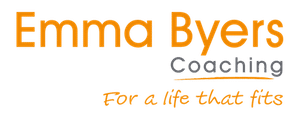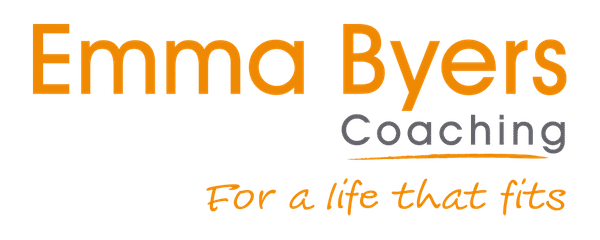I’m often asked “do I need coaching or counselling” and so thought I’d share my own take on this here.
I’ve often heard it said that counselling or therapy is about the past, and coaching is about the present and the future. I understand what’s meant by that, but it’s an oversimplification that I believe does a disservice to both coaching and counselling.
Or some say that coaching is about setting and achieving goals, whereas counselling is about solving problems or resolving past issues. That a coach will challenge, and a counsellor will listen. Again, an oversimplification – we all do more than one thing!
So what is the difference? And is it coaching or counselling you need?
Well, it’s not so clear cut to be honest, particularly with my holistic style of life coaching where I blend transformational coaching, somatics (working with the body and the nervous system) and healing modalities to help people step into who they were always meant to be.
For many the difference comes down to a matter of preference so it’s useful to see if what I do resonates. So let me explain a bit more specifically about my coaching here and its similarities and differences to counselling. But there’s also the considerations of capacity and need, and I’ll dig into that more next week and share some of the clues I look for to see if someone would benefit more from therapy than coaching.
Future-focused; present-aware
There is definitely an aspect of coaching that is future-focused in that we often look at what we’re aiming for – where someone wants to be, what they want from life, what they’re aiming for, what they long for. And that also means considering where someone is right now and what might be getting in the way. This could also happen in therapy, but my sense is that the focus tends to be more on the why rather than the what of “getting in the way”.
But the past counts too
Part of the reason I push back against those saying coaching isn’t about the past is that for many of us, our current stumbling blocks are rooted in the behaviours and beliefs that were ingrained at a young age (both consciously and unconsciously). These can be powerful drivers and can steer us on paths we don’t want to travel, often without us even realising.
And so there are times that we look at these so that clients can choose which they want to release, and create a toolkit to do this. This isn’t about delving into who did what, when, or going back into the vortex of difficult times. It’s about bringing the echoes that are here now into the light and working out what we want to do about them.
Trauma-informed embodied coaching
I do this from a trauma-informed place, having worked with my own (small “t”) trauma and trained with people such as Peter Levine, Deb Dana, Shelby Leigh and Sarah Baldwin. I create safe, empowering spaces and work with empathy, presence and proficiency. I honour the nervous system, the body and unconscious mind as part of the whole. No amount of goal setting, logic or best intentions work when your system is screaming to stay safe, still, small. And so we meet it where it is and help it learn it’s ok to move and grow (in a safe and sustainable way).
I would say that this isn’t standard in life coaching and is perhaps why the boundaries are slightly more blurred between my holistic coaching and counselling. I’m comfortable working with those with anxiety, low mood, overwhelm, sadness or grief and have years of experience in providing this support, whilst also knowing the extent of my expertise and when others would be a better fit.
Flexibility within a safe container
Life is unpredictable and what feels important can change each day. And so I always keep flexibility in my coaching to go where someone wants to go, that day, that minute. It’s often said that coaching is planned and doesn’t allow for this, whereas counselling is more “see what comes up” but that’s not the case. However, we make any detours consciously and with agreement. That means if we’re moving away from has been agreed then it’s my role to flag that up and double check that’s what’s wanted. If it is, we “recontract” and carry on. Again, that helps with a sense of safety and helps us get the most from each session.
Momentum and commitment
I work with coaching packages (committing to a number of sessions) as find this is the ideal way to keep momentum and focus. In my experience, it’s more effective than individual sessions – that is to say, clients achieve better results in less time. It means that we are both fully committed to the process and keep focused on what we’re aiming for. Most counsellors work on a session by session basis.
Achievable action
Counselling is often about exploring and revisiting experiences and emotions to try and gain insight or a new perspective. And of course, sometimes that can include agreeing actions to create new ways (particularly with therapeutic models such as CBT). With coaching, exploration and action take centre stage. Rather than “revisiting”, it’s about trying to find insight, ideas, new ways, support systems. The client comes up with the solutions, together we check what’s achievable and then make a plan. My role is to help someone to help themselves, to tune into the insight and ideas, plus to share tools and tips that can help make it happen.
Emotion’s welcome
And finally, I always emphasise that though coaching isn’t about picking at the painful bits, there can be times when emotion comes up and that’s just fine. Many people think because it’s not therapy, it’s breaks some unwritten rule to cry or get upset. Sometimes we need to look at the what’s been hidden away, and that can feel sad and scary. So we go at a pace dictated by the client, always on their terms, and we hold what comes up.
(and BTW if those locked away aspects are holding you back but the thought of going near them is too overwhelming, too terrifying, too much, then that’s a clue that therapy could be a better option than counselling – but more about that next week…).
If you’re currently looking for help and not sure if it’s coaching or counselling you need, then let’s talk. There’s no obligation or hard sell and I’m ALL about fairness and honesty. It’s a chance for you to find out more about me and the way I work, and for us to see if we’d work well together. If I think you’d benefit more from counselling or some other therapy, I’ll certainly say and try to help you find a route there.

